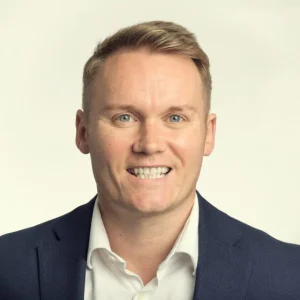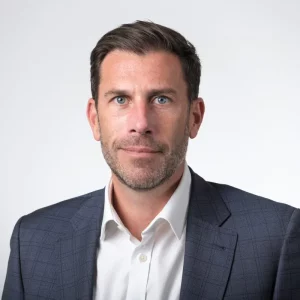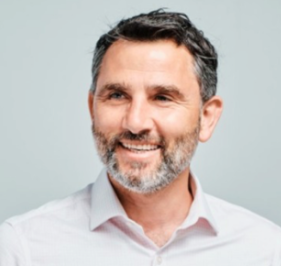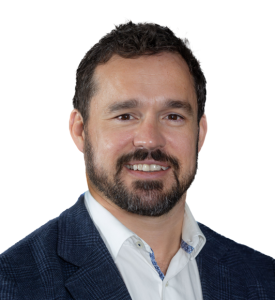Wealth migration experienced a pivotal shift in 2024, with 134,000 high-net-worth individuals (HNWIs) relocating and establishing new domiciles around the world. As we reach the halfway point of 2025, this global trend shows no sign of slowing, with projections indicating that 142,000 HNWIs—each with liquid investable wealth of USD 1 million or more—are expected to move to new jurisdictions in search of favourable tax regimes, stability, and lifestyle benefits[1].
Within this broader global movement, the UK stands out as a key contributor to the outflow. The abolition of the UK’s non-domicile (non-dom) tax regime in 2024 has triggered a significant reassessment among wealthy individuals residing in or connected to the UK. As a result, the country was expected to experience a net loss of 9,500 millionaires in 2024—making it the second-largest loser of millionaires globally, behind only China[2]. Long regarded as a destination of choice for international wealth, the UK’s shifting fiscal landscape has pushed many globally mobile individuals to explore alternative jurisdictions that offer both tax efficiency and a high standard of living.
From the Channel Islands to the Mediterranean and the Middle East, governments are actively competing for this displaced wealth through favourable tax policies, golden visa programs, and lifestyle perks. So, where are the HNWIs going—and why?
Jersey: A trusted safe haven close to home
Jersey continues to attract wealthy individuals seeking proximity to the UK with none of the tax burdens that now come with being UK-resident.
- Tax advantage: Income tax is capped at 20% on the first £1.25 million, with just 1% on income above that. Crucially, there are no capital gains, inheritance, or wealth taxes.
- Residency route: The High Value Residency programme remains a popular path, requiring both significant personal wealth and property investment. In 2024, there were 18 approved applications with 11 actual high value resident arrivals. In 2025, approvals are already at 14 with 19 new arrivals—marking a strong increase on last year and signalling continued momentum at only halfway through the year[3].
- Why Jersey? A politically stable jurisdiction with a world-class financial services sector, Jersey offers a secure and discreet environment just a short flight from London.
Guernsey: predictable, private and tax-friendly
Guernsey mirrors Jersey’s appeal but brings additional flexibility through its tax cap regime.
- Tax advantage: A flat 20% income tax, with caps ranging from £50,000 to £300,000 depending on income type and property investment.
- Residency route: Acquiring open market property facilitates residency with fewer bureaucratic hurdles.
- Why Guernsey? It’s quiet, safe, and sophisticated—ideal for those seeking discretion and a slower pace of life with high-quality financial infrastructure.
Europe: lifestyle, legacy and tax efficiencies
Several European destinations continue to attract HNWIs with a blend of lifestyle appeal and favourable tax treatment. Countries like Italy, Monaco, and Cyprus have carved out strong reputations as wealth-friendly jurisdictions offering both residency pathways and long-term tax advantages.
- Italy: Italy welcomed around 2,200 wealthy individuals in 2024 and remains attractive despite increasing its flat tax on foreign income to €200,000 annually (plus €25,000 per dependent) [4]. With residency routes including the Elective Residency and Investor Visas, Italy appeals to lifestyle-driven HNWIs drawn by its culture, cuisine, healthcare, and relaxed Mediterranean way of life.
- Monaco: Monaco continues to lead for tax-free living, with over 200 HNWIs expected in 2025 and millionaire growth of +68% over the last decade[5]. With no income tax and simple residency requirements (proof of accommodation and funds), it offers luxury, security, and prestige in one of the world’s most established wealth hubs.
- Cyprus: Cyprus offers tax residency with just 60 days’ presence annually and no significant ties elsewhere. Non-doms benefit from exemptions on dividend and interest income and a 12.5% corporate tax rate. Its strategic location, warm climate, and accessible investment-based residency continue to attract HNWIs seeking an EU foothold.
United Arab Emirates: A premier destination for wealth
In 2024, 6,700 millionaires relocated to the UAE. With 142,000 millionaires expected to migrate globally in 2025[6].
- Tax advantage: No income or inheritance tax.
- Residency route: Long-term Golden Visas for investors and professionals.
- Why UAE? A modern, business-friendly environment with luxury infrastructure and zero tax—ideal for entrepreneurs and executives alike.
Choosing the right jurisdiction
Each destination offers a distinct value proposition, shaped by factors such as legal certainty, lifestyle, tax policy, and proximity to key markets. For many, the Channel Islands—particularly Jersey—are increasingly attractive, thanks to strong transport links, cultural alignment with the UK, and long-standing, politically supported regimes for wealth structuring. Their simplicity, discretion, and proven track record in accommodating HNWIs continue to resonate, especially in a post-non-dom environment.
Recent developments, however, also highlight the importance of stability and regulatory alignment when choosing a new base. The Court of Justice of the European Union’s April 2025 ruling against Malta’s investor citizenship scheme serves as a stark reminder. The court found Malta’s “golden visa” program incompatible with EU law due to its transactional nature, raising broader concerns for similar EU programmes and signalling a potential tightening of scrutiny across Europe[7].
As HNWIs reassess their priorities—be it asset protection, mobility, legacy planning, or fiscal efficiency—the jurisdictions discussed here aren’t just alternative places to live. They are platforms for long-term wealth preservation and strategic growth.
At Belasko, we’re seeing increasing demand for relocation support, family governance structures, and asset protection strategies as clients reposition in response to the UK changes. As a cross-jurisdictional firm with deep expertise in private wealth structures, we help clients navigate complex decisions with clarity, discretion, and a long-term view for the future.
Contact Paul Lawrence, Group Managing Director at Belasko (paul.lawrence@belasko.com), to explore tailored structuring options in Jersey and beyond.

[1] https://www.henleyglobal.com/publications/global-mobility-report/2025-january/why-2025-will-be-landmark-year-wealth-migration
[2] https://www.henleyglobal.com/publications/henley-private-wealth-migration-report-2024/top-10-country-outflows
[3] https://www.gov.je/Home/RentingBuying/HousingLaws/pages/highvalueresidency.aspx
[4] https://www.reuters.com/world/europe/italy-retains-appeal-super-rich-new-residents-despite-tax-hike-2024-08-09
[5] https://www.henleyglobal.com/publications/henley-private-wealth-migration-dashboard/countries-to-watch
[6] https://gulfbusiness.com/6700-millionaires-relocated-to-the-uae-in-2024/#:~:text=In%202024%2C%206%2C700%20millionaires%20relocated,bn%20(Dhs26bn)%20in%20capital.
[7] European Union-Malta: EU Court Rules Malta’s “Golden Visa” Is Contrary to EU Law | Library of Congress





